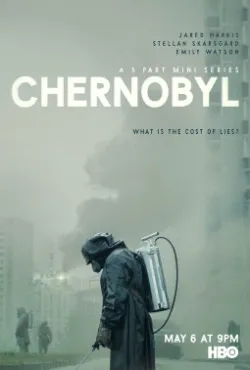Historical accuracy of Chernobyl Season 1

Characters
Story
Setting
Historical accuracy of: Chernobyl Season 1
Characters
Story
Setting

Characters
Valery Legasov
Valery Legasov was a real Soviet nuclear physicist who played a key role in the investigation of the Chernobyl disaster. The series accurately portrays his dedication to uncovering the truth, his efforts to mitigate the disaster's consequences, and his eventual suicide.
Boris Shcherbina
Boris Shcherbina was a real Soviet politician who headed the government commission tasked with responding to the Chernobyl disaster. The series accurately depicts his initial skepticism and eventual recognition of the disaster's severity.
Ulana Khomyuk
Ulana Khomyuk is a fictional character representing the collective efforts of Soviet scientists who investigated the disaster. While not based on a single individual, she embodies the scientific rigor and determination of those who sought to understand the truth.
Anatoly Dyatlov
Anatoly Dyatlov was a real deputy chief engineer at the Chernobyl Nuclear Power Plant. The series portrays his role in the events leading to the explosion, but his characterization has been criticized for potentially exaggerating his arrogance and negligence.
Vasily Ignatenko
Vasily Ignatenko was a real firefighter who responded to the Chernobyl fire and suffered fatal radiation exposure. The series accurately depicts his bravery and the tragic consequences of his actions.
Lyudmila Ignatenko
Lyudmila's repeated visits to her husband despite the extreme radiation risks are a documented part of the tragedy. Her story highlights the human cost of the disaster.
Story
The explosion at the reactor
The series accurately depicts the initial explosion at reactor number four. The core mechanisms and immediate consequences are consistent with historical accounts.
The initial response and confusion
The chaos, confusion, and lack of clear information among plant personnel and local officials are well-represented. This confusion contributed significantly to the disaster's escalation.
The miners' work in Tula
The depiction of the miners brought in to dig a tunnel under the reactor to prevent a meltdown is accurate. The difficult conditions they faced are also well-documented.
The helicopter crash
The helicopter crash depicted in the series did occur. It was a real incident during the response efforts, though some details might be dramatized.
The trial of the key figures
The trial of the plant's managers and other officials is based on the actual court proceedings. The series accurately reflects the core arguments and outcomes.
The cause of the explosion
The series explains the AZ-5 test and the design flaws that contributed to the disaster, which is consistent with the official investigation and scientific understanding of the event.
The scale of the evacuation
The massive scale of the evacuation from Pripyat and surrounding areas is well-represented. The speed and scope of the operation are crucial parts of the story.
The effects of radiation on the victims
The series portrays the devastating effects of radiation sickness in a realistic and harrowing manner, based on real accounts and medical knowledge.
The government's response and cover-up
The series highlights the Soviet government's initial attempts to downplay the disaster and control the narrative. This aspect is consistent with historical evidence and analysis.
The long-term health consequences
The series acknowledges the long-term health effects of the Chernobyl disaster, though it primarily focuses on the immediate aftermath. The full extent of the consequences is still debated.
